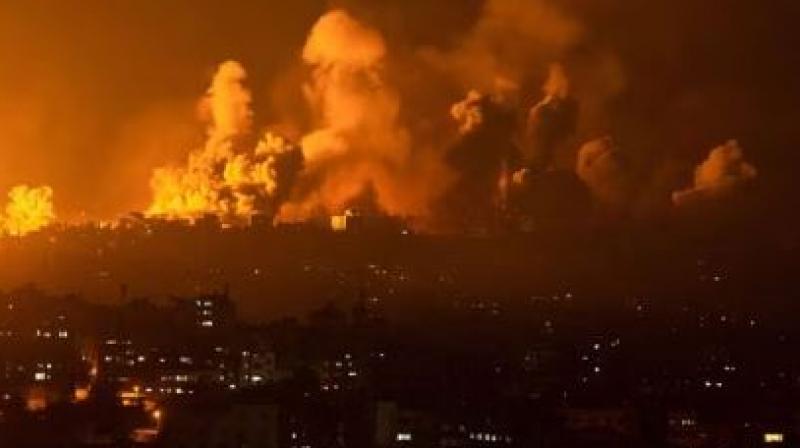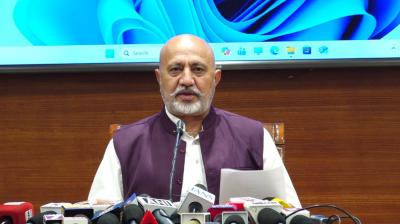
Israel-Palestine War: Israeli Troops Advance as Diplomatic Efforts Seek to Ease Crisis
Israel-Palestine War Latest News: In a distressing update from the Gaza Strip, the Health Ministry in the Hamas-ruled territory revealed on Thursday that the ongoing conflict has resulted in the deaths of over 9,000 Palestinians in a span of more than three weeks. Dr. Ashraf al-Qudra, a spokesperson for the ministry, reported that among the casualties, 3,760 are individuals under the age of 18.
On the Israeli side, the toll stands at more than 1,400 people, with a significant majority being civilians who lost their lives during Hamas' incursion into Israel on October 7.
It's worth noting that the Health Ministry in Gaza, though associated with the Hamas-run government, includes doctors and experienced civil servants who maintain independence from the group. Their casualty figures have withstood scrutiny from the United Nations, independent investigations, and even Israel's own tallies.
As the conflict intensifies, Israeli ground troops have moved closer to Gaza City. Simultaneously, diplomatic efforts involving the United States and various Arab nations are being ramped up to alleviate the humanitarian crisis in the Hamas-ruled enclave and seek a temporary ceasefire to aid civilians.
President Joe Biden recently proposed a humanitarian "pause," and a reported agreement among the U.S., Egypt, Israel, and Qatar, which acts as a mediator with Hamas, has allowed several hundred Palestinians with foreign passports, along with dozens of wounded individuals, to depart Gaza for the first time. Additional departures were facilitated on Thursday.
Increasingly, Arab nations, including those with alliances to the United States and diplomatic relations with Israel, have expressed growing unease over the ongoing war. Jordan, for instance, has recalled its ambassador from Israel and insisted that the Israeli envoy remain out of the country until the fighting ceases, given the "humanitarian catastrophe" it is causing.
The toll on Palestinian children is particularly devastating, with more than 3,600 children losing their lives in the past 25 days. Additionally, airstrikes have forced over half of Gaza's 2.3 million residents from their homes, leading to shortages of essential resources such as food, water, and fuel.
After three weeks of extensive airstrikes that have left entire neighborhoods in ruins, Israeli troops have made larger-scale incursions into Gaza. The conflict, the fifth and deadliest of its kind in Gaza, initially erupted when Hamas initiated a violent incursion into Israel on October 7, resulting in hundreds of casualties, including some individuals taken captive.
While the United States has pledged steadfast support for Israel in its efforts to end Hamas' rule in Gaza and dismantle its military capabilities, both nations appear to lack a concrete plan for what follows.
White House officials have asserted that a temporary ceasefire would enable increased humanitarian aid delivery and potentially lead to the release of hostages. U.S. Secretary of State Antony Blinken is anticipated to return to the region on Friday. The recent departures of Palestinians through the Rafah border crossing into Egypt came after weeks of negotiations. Despite the facilitation of over 260 trucks carrying food and medicine through the Rafah crossing, aid workers assert that this assistance remains insufficient.
Efforts to evacuate approximately 400 Americans, along with their families, are underway, as indicated by the United States. Egypt, however, has expressed concerns about accepting an influx of Palestinian refugees, fearing that Israel may not permit their return to Gaza after the conflict ends.














